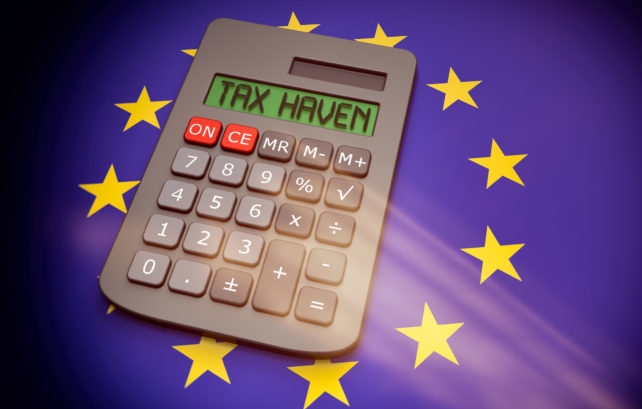In a debate on Thursday, MEPs from across the political divide deplored the lack of transparency surrounding the compilation of the EU tax haven blacklist.
They said the lack of information about the criteria for adding a country to the list, and more importantly for its removal, had completely undermined its credibility.
As a result, the MEPs said the list was an ineffective tool in the EU’s fight against money laundering, tax avoidance and tax evasion.
German politician Sven Giegold said he would be demanding “all documents relating to the screening of third (non-EU) countries for the EU’s blacklist of tax havens”.
“The credibility of the blacklist has to be restored,” Giegold said.
The criticism followed a decision earlier this year by the Council of the EU to remove eight out of 18 countries from the list of tax havens, a little over a month after the countries were first put on it.
Aggressive tax crackdown
The MEPs also voted 541 votes to 33 votes, with 61 abstentions, to back a proposal which would mean promoters of aggressive, cross-border tax schemes must report those plans to authorities.
The disclosed information would then be made automatically available to national tax authorities in all member states.
French politician Emmanuel Maurel said: “The European Parliament remains steadfast in its commitment to greater transparency and strong measures to tackle tax avoidance and evasion.
“When it comes to aggressive tax planning, public authorities must clean up the mess; they cannot limit themselves to the flow of new schemes, they have to tackle the stock,” Maurel said.
Mounting Criticism
After the blacklist was published on 5 December 2017, it faced heavy criticism from non-government organisations, like Oxfam, for failing to include any EU member state or British overseas territory or crown dependency.
It also failed to specify what sanctions would be imposed against those listed.
Additionally, a letter from the US Treasury Department strongly criticised the blacklist for including Guam and American Samoa, both of which remain on it.
Treasury secretary Steve Mnuchin wrote: “The US disagrees with the [EU] Council’s decision to subject non-EU jurisdictions to a separate review process and to release its own list of ‘non-cooperative jurisdictions’ for tax purposes.”
In early February, several media agencies reported the EU was prepared to blacklist the UK if it uses tax competitiveness as leverage after Brexit.








